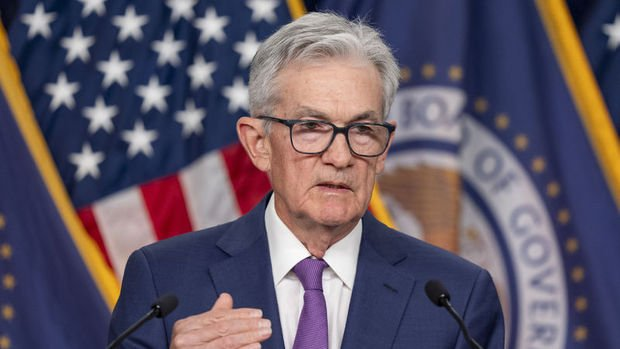Powell's message of cautious easing
Fed Chair Powell emphasized that they will act “carefully” regarding interest rate cuts. US Federal Reserve (Fed) Chair Jerome Powell stated that they are trying to choose the right time to start interest rate cuts and that they will act carefully. Powell made assessments on the agenda on the “60 Minutes” program broadcast on CBS television. Stating that inflation has been declining in the last year and has decreased quite sharply in the last 6 months, Powell said that they have made good progress but “the work is not done yet.” Stating that the US economy is strong, Powell said, “Growth continues at a solid pace. The labor market is strong: unemployment is 3.7 percent and inflation is falling. We think that with the economy being this strong, we can approach the question of when to start cutting interest rates carefully.” “We want a little more confidence before we start cutting interest rates” Reiterating that they want to see more evidence that inflation has fallen to 2 percent in a sustainable manner, Powell said, “We have some confidence. Our confidence is increasing. We want a little more confidence before we take a very important step such as starting to cut interest rates.” Powell said they want to see better data, but added that this does not mean the data is not good enough. Powell pointed out that almost all members of the Federal Open Market Committee (FOMC) believe it would be appropriate to cut interest rates this year, and when asked "when" that would be, he said "it will depend on the data." "The best we can do is weigh the risk of acting too early against the risk of acting too late, and make that decision in real time," Powell said. Powell stated that he could say "that time" has come based on his expectations, and that weakness in the labor market or a convincing decline in inflation would increase their desire to act earlier. “We think we can approach this decision carefully given the strength we see in the economy.” Jerome Powell, when asked about the “danger of acting too early” on interest rate cuts, said the following: “The danger of acting too early is that the job is not fully completed and somehow the good readings that we’ve been getting for the last six months turn out to be not a real indicator of where inflation is heading. We don’t think that’s the case. The prudent thing to do is to give it some time and see that the data continues to confirm that inflation is sustainably down to 2%.” Powell stated that he thinks there is a higher probability of seeing inflation settle well above the 2% target if we act too early on interest rate cuts, and said, “We think we can approach this decision carefully given the strength we see in the economy.” Powell said that if we delay in cutting interest rates, policy will be too tight, which could put pressure on economic activity and the labor market. “We’re trying to pick the right time” Reiterating that they are determined to return inflation to 2 percent over time but that they will not wait to reach 2 percent for a rate cut, Powell stated that they are currently actively considering lowering interest rates and that inflation is not at 2 percent, but the fact that it is downward reassures them. Stating that they are focused on using the Fed’s tools to ensure that the rate cut occurs, Powell stated that choosing the time to begin reversing restrictive monetary policy is a part of this. Emphasizing that they are trying to pick the right time to begin rate cuts, Powell emphasized that they want to be more certain that inflation will decrease to 2 percent. Powell said, “I think it is unlikely that the committee will reach this level of confidence at the March meeting to be held in seven weeks.” “We do not take politics into account in our decisions” When asked to what extent policy will affect the Fed’s timing in line with the presidential elections to be held in the US this year, Powell said, “We do not take politics into account in our decisions. We never do.” When asked if the Fed was too slow to notice inflation in 2021, Powell said, “Looking back, we can say that it would have been better to tighten policy earlier.” Stating that they thought the economy was very dynamic at the time and that it would correct itself quite quickly, Powell said, “We thought that inflation would disappear quite quickly without our intervention. That this would be temporary. Although there was no consensus among economists around the world, there was a very widespread view. The data was in line with this assessment, this hypothesis, to the point that they were not. So it turned out that inflation in the fourth quarter of 2021 was not temporary in the sense that I was talking about.” “The US is on an unsustainable fiscal path in the long term” When asked about the US national debt, Powell said that they tried not to comment on fiscal policy, but that the US was on an unsustainable fiscal path in the long term, meaning that the debt was growing faster than the economy. Stating that he thought it was widely understood that the time had come to prioritize fiscal sustainability, Powell noted that the sooner this happened, the better. When asked about the possibility of another real estate-related banking crisis due to the depreciation of office buildings across the country due to the remote working model, Powell said he did not think this was likely.


